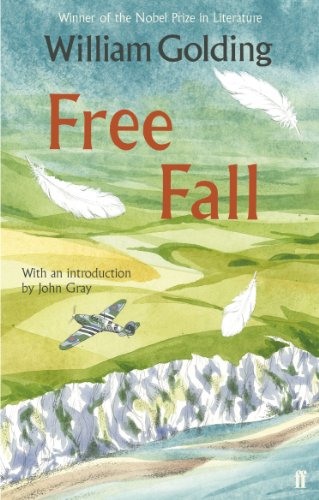9780571298518 - Free Fall: With an introduction by John Gray von Golding, William (2 Ergebnisse)
Produktart
- Alle Produktarten
- Bücher (2)
- Magazine & Zeitschriften
- Comics
- Noten
- Kunst, Grafik & Poster
- Fotografien
- Karten
-
Manuskripte &
Papierantiquitäten
Zustand
- Alle
- Neu
- Antiquarisch/Gebraucht
Einband
- alle Einbände
- Hardcover
- Softcover
Weitere Eigenschaften
- Erstausgabe (1)
- Signiert
- Schutzumschlag (1)
- Angebotsfoto
Land des Verkäufers
Verkäuferbewertung
-
Free Fall: With an introduction by John Gray
Verlag: Faber & Faber, 2013
ISBN 10: 0571298516ISBN 13: 9780571298518
Anbieter: WorldofBooks, Goring-By-Sea, WS, Vereinigtes Königreich
Buch
Paperback. Zustand: Fine.
-
Free Fall
Verlag: Faber and Faber, 2013
ISBN 10: 0571298516ISBN 13: 9780571298518
Anbieter: Kennys Bookshop and Art Galleries Ltd., Galway, GY, Irland
Buch Erstausgabe
Zustand: Very Good. Sammy Mountjoy, artist, rises from poverty and an obscure birth to see his pictures hung in the Tate Gallery. Swept into World War Two, he is taken as a prisoner-of-war, threatened with torture, then locked in a cell of total darkness to wait. He emerges from his cell transfigured from his ordeal, and begins to realise what man can be. Num Pages: 304 pages. BIC Classification: FA. Category: (G) General (US: Trade). Dimension: 198 x 126 x 20. Weight in Grams: 236. Faber & Faber, 1959; 1st edn. unglazed paper dust cover, designed by Anthony Gross, has 3 small closed tears, else very fine; red cloth binding and contents in mint condition; The jacket blurb: With three novels all published since 1954- Lord of the Flies, The Inheritors, Pincher Martin-William Golding has already established for himself a place in English literature which seems likely to be permanent. His originality and inventiveness, his profound intelligence, his passionate concern with the human condition, are fused with purely literary gifts of the highest order-narrative power, the ability to convey with precision the feel and texture of both the interior and the exterior world, a prose style of which the distinction is unmistakable. Mr. Golding has placed his previous novels on a desert island inhabited only by air-wrecked schoolboys, in the prehistoric world of the Neanderthals, on an isolated crag in mid-Atlantic. There has been considerable speculation about where he would turn to next. Free Fall is set in England and in a prisoner^ of-war camp in Germany. The time is the present. Sammy Mountjoy, its narrator and central character, is a distinguished painter; and he is, too, a bastard born in a rural slum who was taken up by the vicar (by no means an ordinary vicar), became an art student and flirted with Communism in the thirties, fell in love with one girl and seduced her, fell in love with another and married her, and in a German P.O.W. camp experienced the blackness of the Pit. And somehow, somewhere, he had irrevocably lost his freedom-the power to choose and decide, the faculty of freewill 'that cannot be debated but only experienced, like a colour or the taste of potatoes'. How did he lose it? And why? In agonized speculation he traces back the threads that promise a way out of the labyrinth, but one after another they snap in his hands. But for the reader the broken threads are woven together into a pattern of one man's life. Free Fall, in its richness of characterization, its immediacy and impact, its reverberating overtones, is perhaps the most important and most moving novel that Mr. Golding has yet given us. 254pp; 7?x5". 2013. Main. Paperback. . . . .


